Summit of Forbidden City Films and Television—Epic Produced in Beijing

The majestic Forbidden City shines brightly in the night sky. The "Everlasting BJIFF—Forbidden City Night" new project launch event, jointly hosted by Beijing Forbidden City Film Co. and the Office of Organizing Committee of Beijing International Film Festival, was held at the Beijing Broadcasting Tower Hotel on August 13, 2023. Yu Junsheng, Deputy Head of the Publicity Department of Beijing Municipal Committee of the Communist Party of China and Secretary of the Party Leadership Group and President of Beijing Radio & Television Station (BRTV), Xu Tao, Deputy Secretary of the Party Leadership Group and Editor-in-Chief of BRTV, as well as the cast & crew representatives, guests from various fields, and media friends, all gathered together to witness this grand occasion.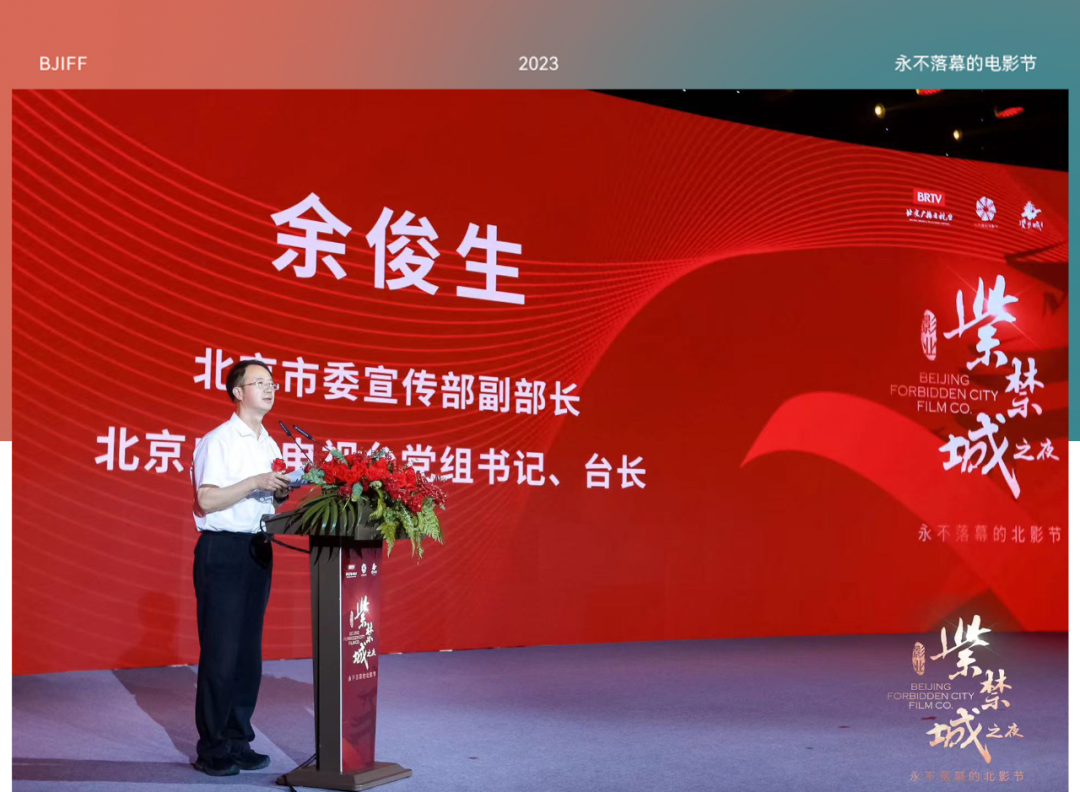

Yu Junsheng delivered a speech
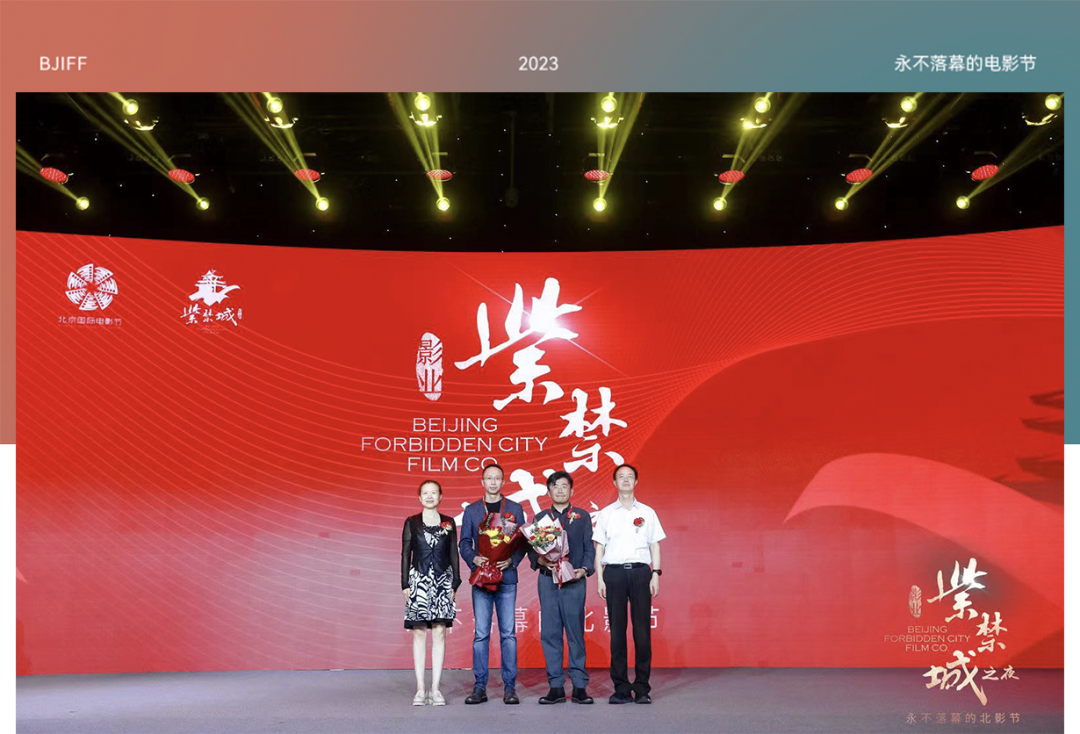
Yu Junsheng and Xu Tao issued work badges to Wang Xiaoqiang and Yu Xiaoqian, both of whom are specially recruited employees of Beijing Forbidden City Film Co.
In April 1997, amidst the wave of commercialization in the film industry, Beijing Forbidden City Film Co. was established. Like a young phoenix's cry, it resounded far and wide. Acclaimed and commercially successful works such as The Days Without Lei Feng, The Dream Factory, A Young Prisoner's Revenge, Be There or Be Square, and Gada Meilin were released one after another. Blockbuster dramas like The VI Group of Fatal Case, Young Emperor, and Yu Guanyin became hot topics among countless people's conversations. The company achieved numerous prestigious awards, including the Huabiao Film Awards, the Best Works Award of the Publicity Department of the CPC Central Committee, and the Golden Rooster Awards. These film and television works either provide a grand narrative to illuminate history, or shed light on everyday life with a focus on the bustling streets, or touch the heart with delicate emotions, or capture the pulse of the times with a sharp perspective. Beijing Forbidden City Film Co., reaching out to the nation and the world rooted in Beijing, rapidly grew into a large-scale professional film and television company and enjoys a high reputation in the industry today.
Due to changes in the market environment and corporate strategic adjustments in recent years, however, Beijing Forbidden City Film Co. has significantly reduced its investment in film and television production, leading to a drastic decrease in output. When a fierce bird is about to strike, it always flies low, folding its wings; when a fierce beast is about to attack, it often droops its ears, crouching down on the ground. This temporary hibernation is for a better eruption. Currently, Beijing is making every effort to promote the construction of a national cultural center and the capital of performing arts. As a cultural enterprise in Beijing, Beijing Forbidden City Film Co. must shoulder responsibilities and fulfill its mission in this process. Under the strategic deployment of its superior authority, BRTV, Beijing Forbidden City Film Co. is now back on the track, running against the wind and forging ahead.
Introduction to Beijing Forbidden City Film Co. and Showreel of Its Works
Beijing Forbidden City Film Co. which is at a fresh start, while preserving traditional film projects, undertakes the due obligations of Beijing Satellite TV in planning the development of self-produced dramas. To have a stronger and more solid start, Beijing Forbidden City Film Co. has made adequate preparations, with ample strategic reserves. Tonight, these projects are unveiled and make a stunning debut. Beijing Forbidden City Film Co. also announces to the audience: We are back with works full of sincerity!
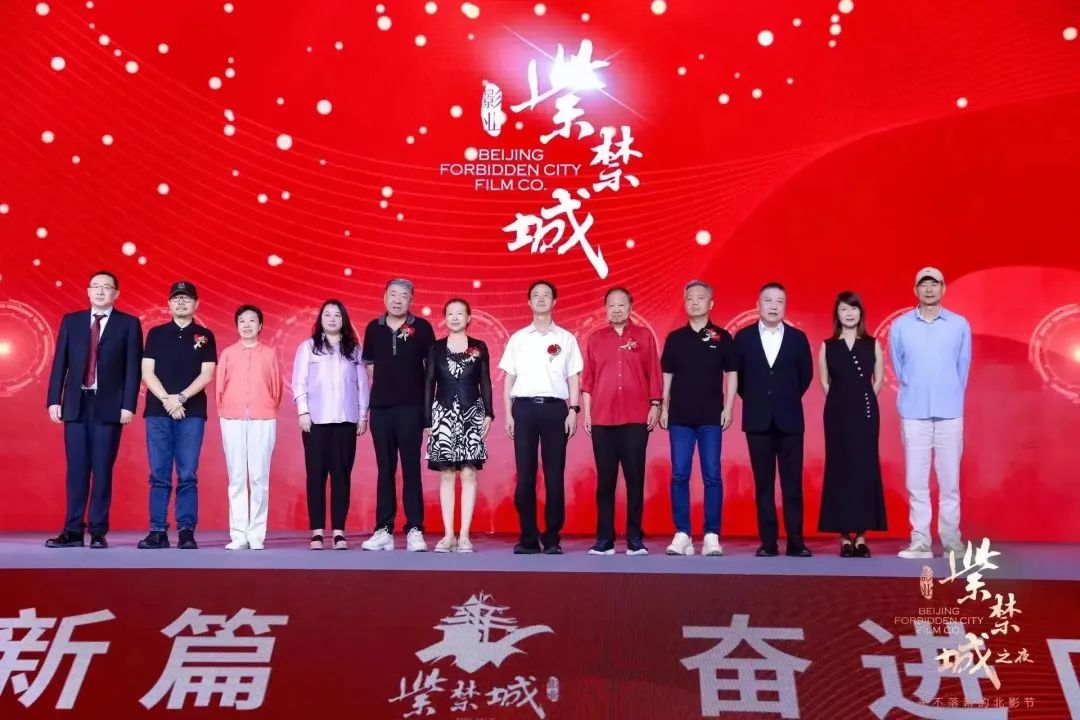
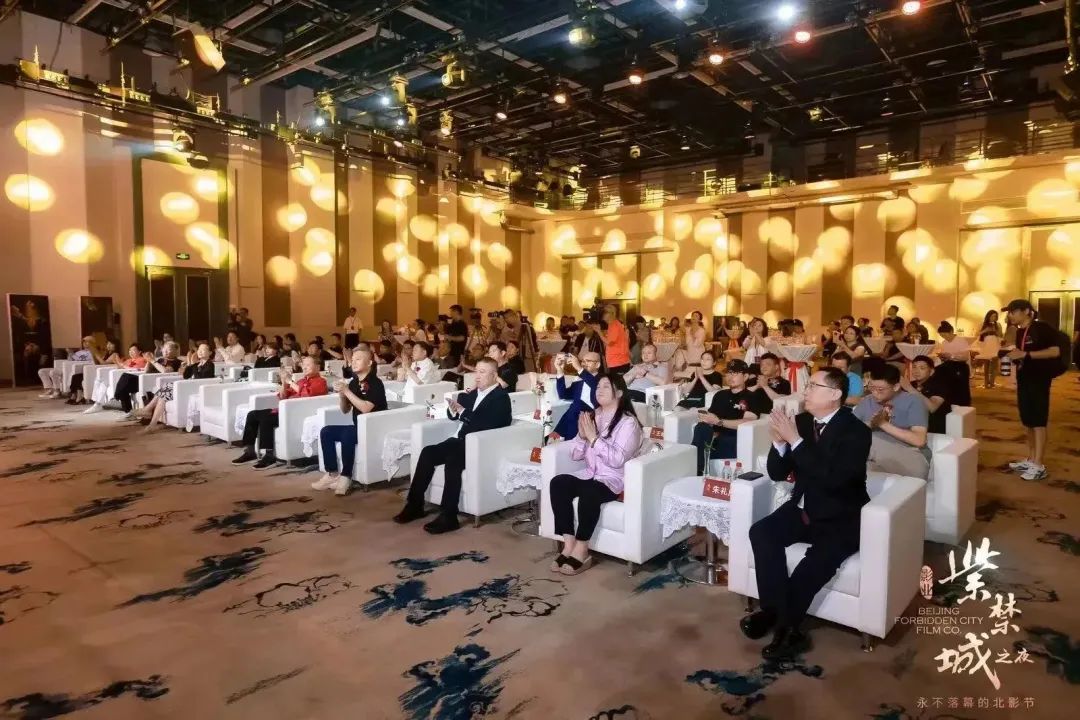
Activity site

The TV drama Kunpeng Strikes the Waves and the film A Dream of Youth are both created to commemorate the 130th anniversary of Comrade Mao Tse-tung's birth.
The TV drama Kunpeng Strikes the Waves is currently being filmed for over a hundred days at Hengdian World Studios in Zhejiang Province. It is expected to wrap up on August 20 and will be aired on the eve of Comrade Mao Tse-tung's 130th birthday on December 26, 2023. This is a mission-driven drama that primarily tells the story of young Comrade Mao Tse-tung's journey from 1918 to 1921, as he traveled to the north in search of truth, organized young students to study in France on a work-study basis, led the "Expel Zhang Jingyao" movement in Hunan, carried out the Students and Labor Movements, established the Xiangjiang Review magazine, formed the Hunan Communist Group, and explored the revolutionary path of China. It is a passionate drama of youth and heroism, with characters like a generation of aspiring young individuals represented by Comrade Mao Tse-tung, including Cai Hesen, Xiao Zisheng, Xiang Jingyu, Yang Kaihui, Cai Chang, and Deng Zhongxia, most of whom were in their twenties at the time. These roles are portrayed by actors from the post-95 generation or Gen Z, representing their first assembly in a major revolutionary-themed TV drama, shaping the image of revolutionary predecessors. Kunpeng Strikes the Waves is the first red classic work starring young people and made for young people. It will undoubtedly attract the enthusiastic attention of the younger generation, with the hope that contemporary young people can feel the brilliance of ideas, the charm of ideals, and the power of belief from the revolutionary predecessors.
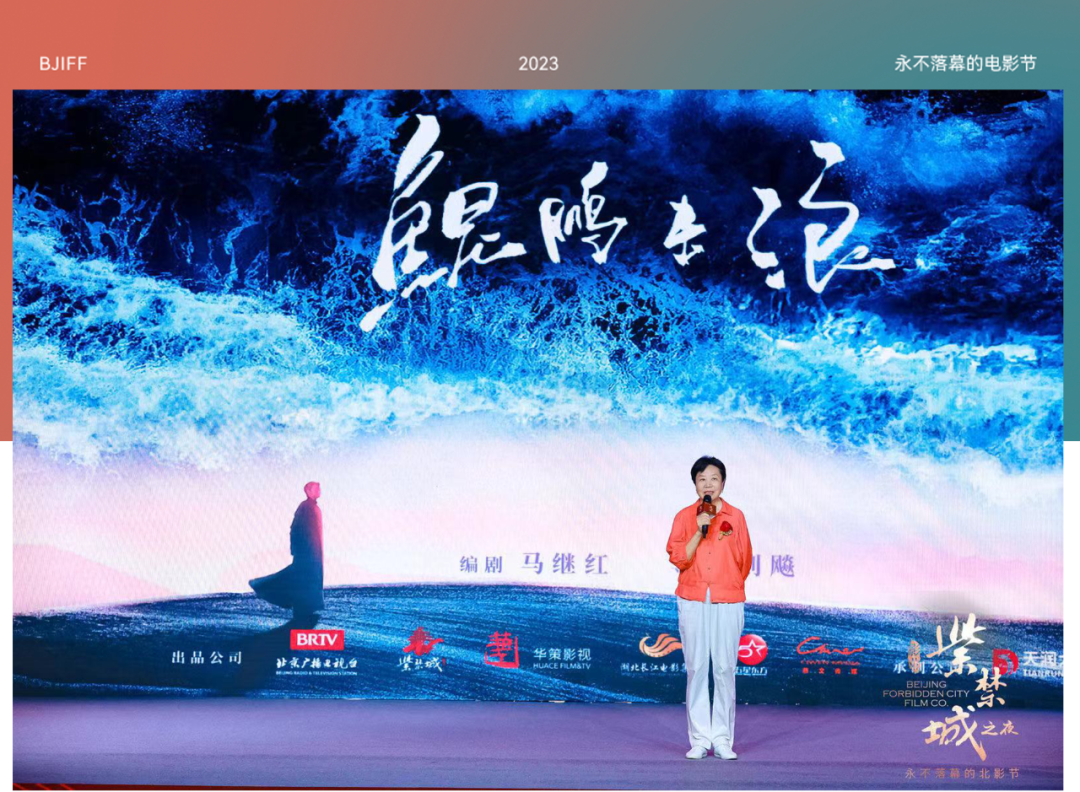
Ma Jihong, screenwriter of Kunpeng Strikes the Waves
The film A Dream of Youth, directed by Chen Guoxing, also focuses on the story of young Comrade Mao Tse-tung. It tells the story of Mao Tse-tung and his classmates who, during their time at Hunan First Normal University, aspire to save the country and seek truth. They embark on a journey through rural areas during the summer vacation, visiting and learning from the working-class and peasant masses during spare time and gaining insights into various social strata. The film reflects Mao Tse-tung's emphasis on reading "wordless books" and the importance of investigation and research, which lays the foundation for exploring the revolutionary path to saving the country and the people. Through down-to-earth social practice, he gains a deeper understanding of the reasons behind China's poverty and weakness at that time, and insight into the tremendous power for change that lies within the impoverished masses. This experience provides him with the most solid support for the path he chooses and the ideals and beliefs he adheres to in the future.
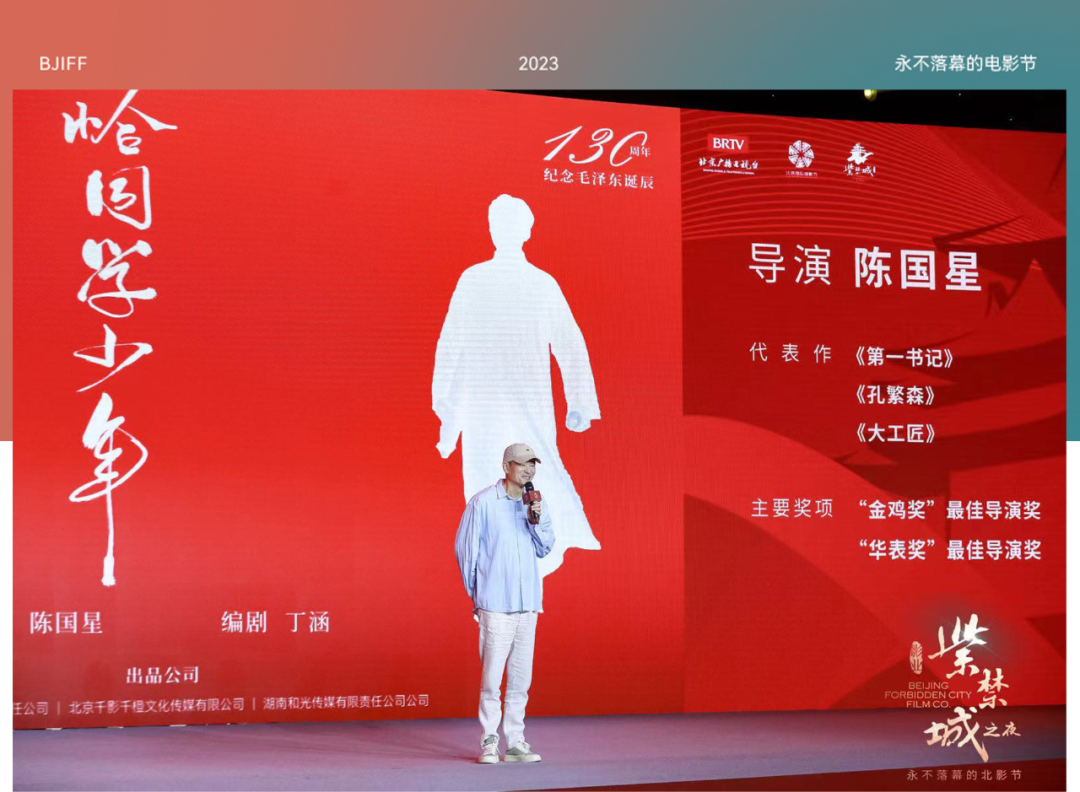
Chen Guoxing, director of A Dream of Youth

The TV drama The Source of Life is adapted and created based on the IP of a large-scale medical documentary program on Beijing Satellite TV. There is a saying among the Chinese people: "Apart from life and death, nothing is of great importance." And The Source of Life deals with such significant events in life, namely life and death. It tells the story of people's rationality and emotions, fragility and strength, helplessness and miracles, care and being loved, as well as the intense desire to hold on and the selflessness that transcends humanity after losing something in the face of life and death. The "Qiangdun" duo, namely the screenwriter Wang Xiaoqiang and director Cao Dun, uses the "qiang (literally, gun)" to strike and touch the audience's emotions, and the "dun (literally, shield)" to defend and ensure the excellent quality of the work. The "Qiangdun" duo will bring the audience an ode to the miracles of life.

Wang Xiaoqiang, screenwriter of The Source of Life
The TV drama Take a Step Forward is based on the mega-hit Take a Step Forward on Beijing Satellite TV. The program has won the China News Awards twice and has been mentioned in the Report on the Work of the Government for five consecutive years. The TV drama Take a Step Forward continues the DNA of the program Take a Step Forward and focuses on public domain topics that are of concern to the masses, as well as the delicate balance between personal interests and public interests. At the same time, the drama takes the inheritance to a higher level. If the program Take a Step Forward is about the distance of a handshake, the TV drama Take a Step Forward is a sincere embrace.

Yu Zhen, director of Take a Step Forward

The City of Craftsmen is set in the 14th year of the Yongle reign of Ming Dynasty and tells the story of a group of skilled craftsmen who built the Forbidden City over 600 years ago. The screenwriter Liu Heng expressed the hope of shaping the artisanal spirit through this work, as well as shaping ourselves and our souls. As a realistic historical drama, The City of Craftsmen is framed in terms of a craftsman family and depicts the struggles of the lower class during the Yongle period in contributing blood and sweat to the construction of the Forbidden City. It portrays the resilience of Chinese craftsmen and highlights the people-centered approach and their role in creating history. The drama is directed by Zheng Xiaolong, with Liu Heng as the screenwriter. The cast & crew team has conducted extensive research and in-depth interviews with experts to recreate historical details, offering innovative perspectives on historical legends and imbuing the drama with a strong sense of humanity and patriotism.

Zheng Xiaolong, director of The City of Craftsmen

The TV drama Wonderwall is written by Yu Geng, the author of If There is No Tomorrow, a TV drama that opened up new territory for domestic absurd dramas. Wonderwall takes it to the next level. It shifts from a single character's perspective to the confrontation between a husband and wife. The two main characters in the drama have high intelligence and rich action, creating a powerful duo. By combining the themes of realistic marriage and absurd mystery comedy, and blending popular genres with a new type, it creates the realistic topic of "spy marriage". The author uses a concise urban sketch to humorously depict the unusual encounters in the lives of ordinary couples. Under bold settings and absurd styles, it reveals a truth that middle-aged people in contemporary society are entering the complexities and depths of real life and marriage. The work portrays a devoted couple who take life seriously, but also shifts perspective to showcase their struggles and dilemmas behind the scenes. Through the accumulation of multiple realistic dilemmas, it reveals the vulnerability and struggles of human nature, and highlights the meekness of individuals confronting life. After going through twists and turns, they come to realize the value of their commitment to each other, emphasizing the preciousness of marriage and proving its realistic worth. Wonderwall is not only a physical structure in the drama, but also a "psychological barrier" that people face and need to break through and contemplate.
The TV drama Bell and Drum Tower is the sixth collaboration between director Liu Jiacheng and screenwriter Wang Zhili, who have become a golden duo in depicting the unique flavor of Beijing. Standing on the Bell and Drum Tower, people are exposed to one side representing tradition and the other standing for modernity, and to one side embodying history and the other representing the future. Bell and Drum Tower tells the inspiring stories of two generations of textile workers in Beijing during the construction and development of the fashion capital, revolving around love and family. The work exudes a warm realism style and has formed its own unique genre, filled with genuine emotions and deeply resonating with the audience. It not only continues the quality of Beijing-style dramas but also vividly showcases the customs, cultural heritage, and etiquette surrounding the red walls and gray tiles from the Bell and Drum Tower to Yongding Gate and both sides of the central axis. In summary, Bell and Drum Tower encompasses the charm of old Beijing and the trend of new Beijing.

Liu Jiacheng, director of Bell and Drum Tower

The music film Red Scarf is directed by Ye Daying, who previously directed Red Cherry and A Time to Remember. Renowned planner Zhang Heping serves as the art director, marking their collaboration after 25 years. Red Scarf tells the story of nine-year-old Lin Dalin, a martyr's orphan who joins the Young Pioneers and experiences various events before and after being a young pioneer. It explores his admiration for his father, misunderstandings towards his mother, the helplessness of a child not being accepted by others, and the profound impact after discovering the truth. The film reflects the Big Time through small incidents, constructing a grand narrative from a small perspective. Creatively, it restores the revolutionary war era from a child's point of view, guiding children to deepen their understanding of history, deeply perceive the present, and look forward to the future with great affection.

Zhang Heping, art director of Red Scarf
The film and television works released during the "Forbidden City Night" event encompass the profound ancient capital culture, rich and weighty red culture, distinctive Beijing-style culture, and vibrant fashion culture. It aims to contribute to the construction of the "national cultural center" and the "capital of performing arts" through high-quality productions. At the same time, Beijing, as a pacesetter for film and television, provides the foundation for the development of Beijing Forbidden City Film Co. with its creative environment. It possesses the richest cultural and talent resources. The event was attended by many directors, screenwriters, and industry guests from the film and television industry, such as Zheng Xiaolong, Zhang Yongxin, Ma Jihong, Wang Zhili, Wang Xiaoqiang, Yu Zhen, Yu Geng, and Wang Shaolin in person, making the "Forbidden City Night" ablaze with excitement. These guests have either collaborated with Beijing Forbidden City Film Co. multiple times, are currently collaborating, or are planning to collaborate in the future. By joining forces and working together, they will bring the most powerful intellectual resources to propel the advancement of Beijing Forbidden City Film Co.
Moving forward, Beijing Forbidden City Film Co. is ready to start a new chapter and strive for the future. It is willing to collaborate with major film and television production institutions and broadcasting platforms, innovate in product offerings, explore high-quality content, stimulate investment and financing vitality in the film and television industry, create a platform that integrates business and art, promote the improvement and efficiency of the capital's film and television industry, and outline a new landscape for China's film and television industry. With the spirit of the times, it aims to tell Chinese stories.
